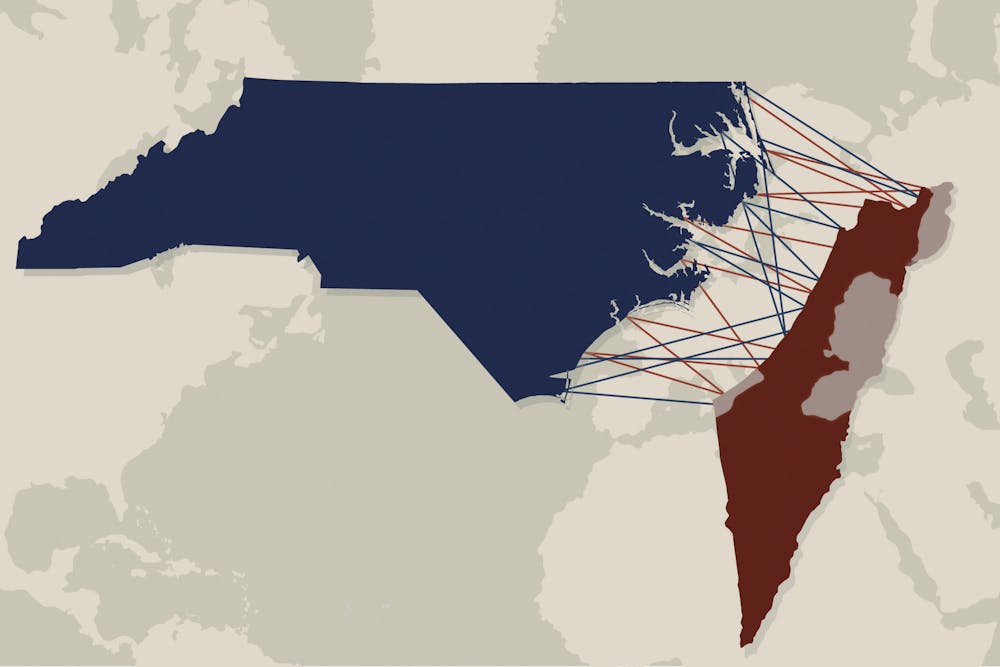It has been nearly two months since the conflict in Israel and Gaza escalated and questions have arisen about the role of individual U.S. states in foreign affairs. Many states, including North Carolina, have connections with Israel and domestic pro-Israel groups independently from the federal government — and some politicians do, too.
In 2021, the American Israel Public Affairs Committee — a bipartisan group that aims to get pro-Israel policies passed by U.S. Congress — announced its plans to form a PAC called AIPAC PAC. The group also formed a super PAC called United Democracy Project (UDP), ahead of the 2022 election cycle.
All 14 of North Carolina's current congressional representatives received money from AIPAC PAC during the 2022 election cycle.
Rep. Valerie Foushee (D-NC 4th), who represents Chapel Hill, also received more than $2 million from the United Democracy Project, making her the third-highest recipient of UDP money in the country.
Foushee was singled out by AIPAC and UDP because one of her opponents in the Democratic primary for the 4th District was Nida Allam, a Durham County commissioner who had expressed criticism for Israel. In AIPAC’s 2022 political achievements fact sheet, Foushee is listed as one of eight pro-Israel candidates who "defeated opponents who would have undermined the U.S.-Israel relationship in Congress."
The House passed H.R. 6126, a $14.3 billion aid package for Israel, passed in the U.S. House in early November with support from all seven North Carolina Republican representatives and Democrat Rep. Don Davis (D-NC 1st),who was also supported by UDP in his primary in 2021 against an opponent critical of Israel.
The proposal rescinded $14.3 billion from the IRS and did not include aid to Ukraine or Gaza.
Rep. Alma Adams (D-NC 12th) is the only member of Congress in North Carolina who signed onto House Resolution 786 on Oct. 19, which called for a cease-fire in Israel and occupied Palestine. On Dec. 2 — a month and a half after the initial cease-fire resolution — Foushee signed a letter to President Joe Biden along with 11 other members of Congress calling for a bilateral cease-fire.
Kylie Broderick, a Ph.D. candidate at UNC, is on the executive board for UNC Students for Justice in Palestine. She said she thinks N.C. politicians who have not called for a cease-fire are not responding to the will of the people, which she said sends a message that politicians value profits over their Palestinian and Arab constituents.



